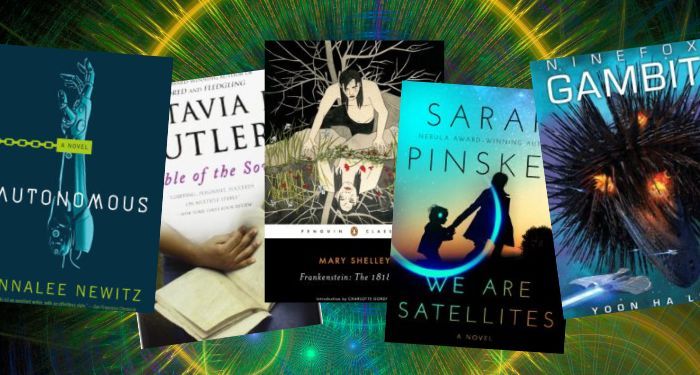When it comes to science fiction, there is a fine line for the suspension of belief. To truly sit within the science fiction genre, you have to have some element of realism with your science. Otherwise, it is simply fantasy (which is okay and I have no problem with this, but at least be honest with yourself). Real science fiction takes what we know about science and then adds the story on top.
To be fair, science has been leaping forward every day with new discoveries. Sci-fi writers only need to turn on the news for a brief moment before they are inundated with ideas for their next story. Many readers, including myself, LOVE this element of realism. Maybe it’s because I like a book that does exactly what it says on the cover. Maybe it’s the scientific mind, always asking and seeking a reason why. Either way, the love for realism in science fiction continues to grow, splintering off into the sub-genre, Hard Science Fiction.
For a quick rundown on what counts as Hard Science Fiction, check out this Beginner’s Guide to the Genre. If you’re ready to immerse yourself in some truly realistic science fiction novels, then we have the list for you.

Frankenstein by Mary Wollstonecraft Shelley
Mary Shelley is the mother of science fiction. It’s hard enough to bring in the credit she is owed for her amazing literary skills. However, she also did a lot of research to add as much realism to her story as possible. Shelley refused to have her story relegated to the realms of fantasy (not that there is anything wrong with that but she simply did not want this). Instead, she was the first to fully integrate contemporary biological research with her horror concepts. Her research into Galvanism encouraged scientists to further investigate the then-new theory of electrical currents creating movement in muscles. There are also some claims of subtle undertones in Frankenstein relating to Shelley’s own concerns for meteorology, weather patents, and potential climate change. Even all the way back in 1818.

Parable of the Sower by Octavia E. Butler
I’m always nervous when a book is set ‘just around the time corner’ with way too many similarities to ignore. This one is set in 2025 with a too-near future where climate change leads to violence, drought, and famine everywhere. Lauren Olamina is one of many struggling to survive, both the world outside and her personal condition: hyperempathy. Hyperempathy makes her extraordinarily sensitive to the pain of others. When fire destroys her community, Lauren must lead a group of refugees across the United States of America and not lose herself in the process. Although published in 1993, this book is absolutely accurate in its analysis of climate change and its potential impact on our communities and ecosystem. It’s hard not to be caught up in social commentary when science is right outside our door.

The Martian by Andy Weir
A software engineer/space nerd wrote a book where the main character relies on his engineering skills to save his life. Mark Watney has been left for dead on Mars. By the time NASA realises and sends a rescue mission, Mark should be dead almost 50 times over. This is the story of how he wants to prove science wrong with even more science. If there is one flaw with this book it’s that there is too much science but that’s what makes it so damn realistic. Add in the very nerdy personality and I swear it feels real.
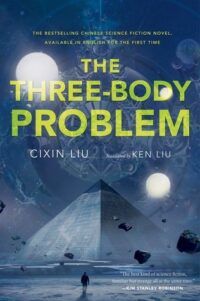
The Three-Body Problem by Cixin Liu
Set against the Chinese Cultural Revolution, an experiment sends a message to space. The aliens who receive it are themselves on brink of destruction, and they now see Earth as their new destination. Those on Earth are undecided: do they welcome the superior beings and let them have a world seen as corrupt and pretty much useless anyway? Or do they fight against the invaders for something else? Liu places science front and centre in this story that resets our values in a world fuelled by fear of that same education and enlightenment. The realism of the social hostility to science and education is way too poignant right now.
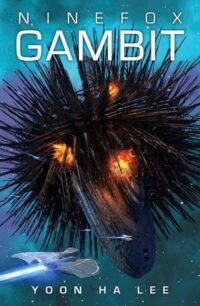
Ninefox Gambit (The Machineries of Empire) by Yoon Ha Lee
Captain Kel Cheris has one last chance to redeem herself. Recapture the Fortress of Scattered Needles and she can have her career back. Maybe her dignity too. Unfortunately, everything depends on her new teammate: undead tactician Shuos Jedao, with a dark past of his own. While the characters’ dynamic is fantastic, the real treasure lies in the pure mathematics that sets the scene and carries it forth. Everything in this world is ‘calendrical’, following the rules, physics, and nature of the calendar program. Maths truly is the universal language, and Yoon Ha Lee has simply taken its words and created a story.
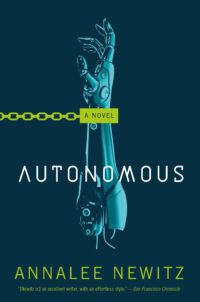
Autonomous by Annalee Newitz
Every time I hear about AI and robot advancement, a little part of me shudders. It’s not a new topic in sci-fi, but Newitz weaves the issues of slavery and robotics like the core root system in your backyard garden. A military agent and his robot partner Paladin are on the hunt for a pharmaceutical pirate. She is on the hunt for the drugs she helped create that are now killing people, making people addicted to work and battling lethal overdoses. What starts as a pharmaceutical socio-commentary also takes on the greater issue of transgender robot issues, sexual repression, and socio-responsibility with medical advancement.
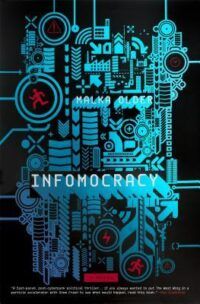
Infomocracy: Book One of the Centenal Cycle by Malka Older
Infomocracy was published only months before the 2016 U.S. Presidential election. Older swears she was “not predicting the future, just observing the present” — but it’s a tad scary how accurately she portrayed a future where information technology controls politics. In this first book of the series, Older provides great detail to set up the political arena. The sci-fi element lies within the manipulation of information and data, particularly in the realm of social behaviour and our concept of democracy. In the lead-up to an election, how would data analysts balance the line between corruption and idealism and a technological world?
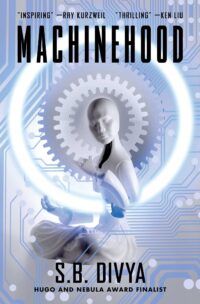
Machinehood by S.B. Divya
ChatGPT has sparked much discussion on how writers (like myself) can compete against artificial intelligence. In Machinehood, it is a similar situation. Humans take pills that help them survive and compete against AI in the gig economy. But now there is a terrorist organisation demanding humans stop taking the pills or they will continue to attack. The Machinehood isn’t just some group of technophobes. They appear to be part human, part machine. Something new. Divya dives deep into the world of AI, how humans rely on it, and the impact that it will have on our collective consciousness as we tread the line between machines and humanity.
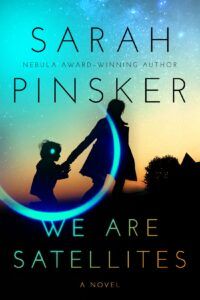
We are Satellites by Sarah Pinsker
“But, Mum! Everyone is getting one!” In the future, everyone seems to be getting a Pilot — a new brain implant to help multitask, increasing your cognitive skills. Val and Julie’s teenage son has asked for one. He believes it is the only way to succeed at school; if everyone else is getting one, how is he meant to compete? On the flip side, his sister, Sophie, will never have an implant. As peer pressure grows, the family and social divide become more apparent. It gives us a brilliant sci-fi that accurately depicts the impact technology has on our everyday lives and our day-to-day relationships.

Leviathan Wakes: The Expanse #1 by James S.A. Corey
When The Expanse was adapted into an epic sci-fi series, fans raved about the realism of the science. Trust me: the books are even better. The entire series is confined to our solar system, limiting the more fantastical ideas of space travel and interstellar communication. Humans have colonised Mars, the Moon, and even the Asteroid Belt. However, we still can’t get our $hit together and we still need to fight each other. The core of the story is a balance of space opera with a noir murder mystery, both storylines intertwining throughout the series. Keeping to realistic sci-fi means we, the readers, can sit back and enjoy this story on its merits. If you are already a fan of The Expanse, keep your eyes out for the graphic novels, recently promoted on Kickstarter and overseen by James S.A. Corey. The campaign was successfully funded with delivery estimated for Dec 2023. The story is set between the final episode of Season 6 and the beginning of Book 7, Persepolis Rising.
For more Hard Science Fiction, keep an eye out for Immigrant Sci-Fi Short Stories by Flame Tree Publishing. It will feature a foreword by E.C. Osondu and an introduction from Betsy Huang. Set to publish 23 May 2023, this collection of short sci-fi tales features stories from Latine, Caribbean, Asian, African, North American, and East European creators. Each story explores the conflict and anxiety between the settled and the unsettled; a look into the lives of immigrants as we relocate amongst the stars. Many of the writers have drawn on their own experiences, blending the reality of immigration today with elements of sci-fi for tomorrow. This is definitely one to add to the TBR pile.
